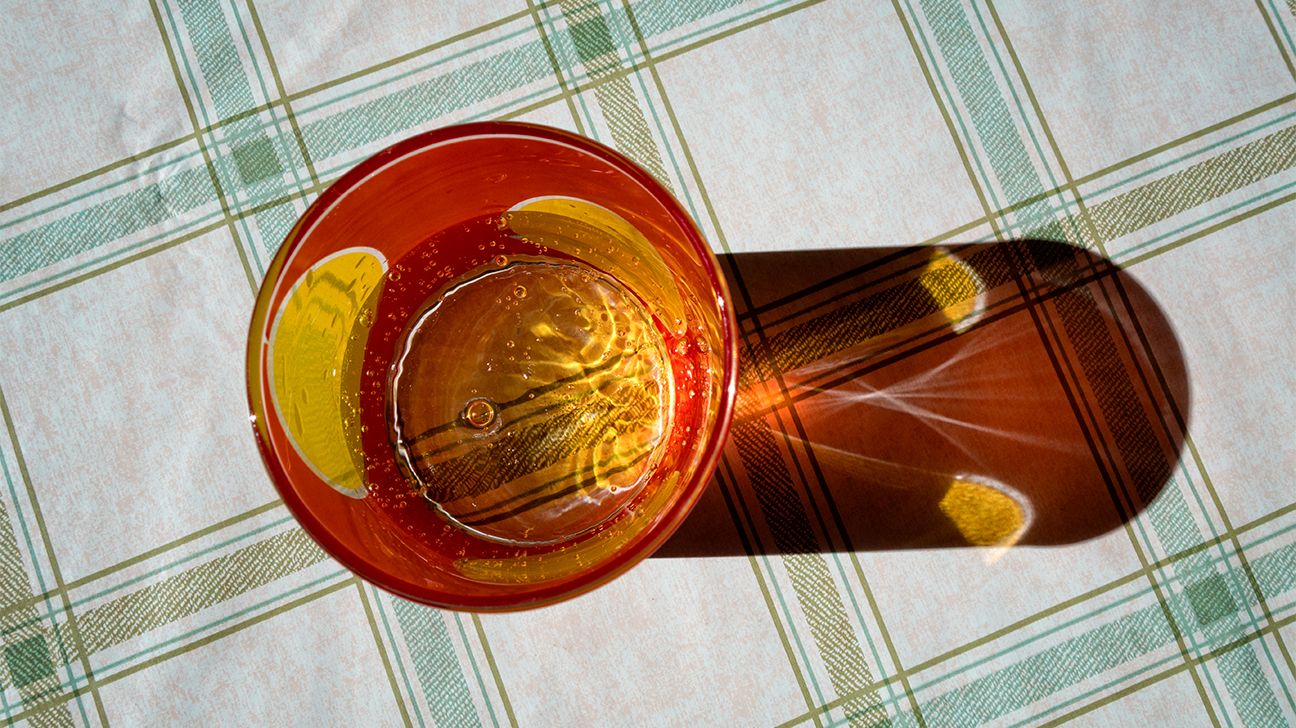We include products we think are useful for our readers. If you buy through links on this page, we may earn a small commission. Here’s our process.
Greatist only shows you brands and products that we stand behind.
Our team thoroughly researches and evaluates the recommendations we make on our site. To establish that the product manufacturers addressed safety and efficacy standards, we:- Evaluate ingredients and composition: Do they have the potential to cause harm?
- Fact-check all health claims: Do they align with the current body of scientific evidence?
- Assess the brand: Does it operate with integrity and adhere to industry best practices?
If LaCroix or Perrier is basically your blood type, you’ve probably been wondering if sparkling water hydrates you like plain old water.
The short of it: You betcha it hydrates you. In fact, it may help you meet those seemingly impossible daily water intake standards.
Here’s how sparking water counts toward your daily water guzzle and keeps you hydrated with a little fizz.

Sparkling water, also known as seltzer or carbonated water, combines two simple ingredients: water and carbon dioxide.
When the carbon dioxide dissolves, creating the bubbly fizz we love, the water’s pH drops (meaning the water becomes more acidic).
Some sparkling waters also have added fruit flavors and minerals like sodium bicarbonate, potassium sulfate, and sodium chloride. These are the ingredients that really change up the taste and make you want to down three cans in one sitting (we’re looking at you, every AHA flavor 🤤).
The most common varieties are:
- Sparkling water, seltzer, or carbonated water. This type of bubbly water is filtered and carbonated artificially.
- Mineral water. The gas in mineral water occurs naturally, but extra carbon dioxide may be added either artificially or from the same source as the water.
- Soda water. This fizzy water contains both carbon dioxide and sodium bicarbonate. It may also contain other compounds to regulate its acidity.
- Club soda. This carbonated water can include sodium components like sodium bicarbonate or potassium bicarbonate. It’s often mixed into alcoholic drinks.
- Tonic water. This carbonated and mineralized water also contains quinine, which gives it a bitter taste. It’s often combined with sweeteners or flavorings.
Call it seltzer, call it sparkling water… carbonated waters are hydrating mostly because they contain water (duh). It’s good news, because even the biggest water devotees can get tired of the flat stuff.
In 2016, researchers examined 13 drinks and gave them a beverage hydration index (BHI) as compared to regular water. The team found that sparkling water was every bit as hydrating as still water.
They also noted that beverages with a higher mineral content tended to be even more hydrating. A small study in 2000 found similar results with plain and carbonated water.
But some sparkling waters may have more sodium than regular water, which could make them less hydrating. When choosing a sparkling water, pay attention to just how much sodium you’re gulping down.
Drink up!
Drinking enough water is key to avoid dehydration. This happens when your body loses more fluid than it takes in and doesn’t have enough water to properly function.
Dehydration can wreak havoc on your bod, leading to mood changes, impaired brain function, and even chronic illnesses.
So, how much water should you drink per day now that you know sparkling water counts?
The Institute of Medicine says men should drink about 101 ounces (about 13 cups) per day and women should drink 74 ounces (about 9 cups) per day. This can include a mix of water, sparkling water, and other hydrating beverages.
The Centers for Disease Control and Prevention (CDC) even endorses sparkling water for those who don’t enjoy drinking plain water. The bubbly effect makes water more drinkable for some people and might encourage them to drink more. But this isn’t permission to down an entire pack of Waterloo in a day.
The fizz from carbonated waters can make you feel more bloated and full, which could cause you to drink less water overall. Some research also suggests that carbonated waters could worsen the symptoms of irritable bowel syndrome.
So, if you’re prone to bloating, it may be a good idea to moderate your sparkling water consumption.
Look out for these additives
Most of us skip plain seltzer (*yawn*) and instead reach for flavored sparkling water. Just pay attention to what you’re drinking.
Some varieties have added sugars and artificial sweeteners that have been linked to obesity and type 2 diabetes. Others just have added calories you may want to avoid, and some aren’t sparkling water at all (like herbal tonics).
There’s also some research linking tooth decay to carbonated drinks that contain added sugar, citric acid, and sodium.
Want the fizzy goodness without all the added flavors and ingredients? Or just tired of spending major $$$ on cases and cases of Bubly?
You can make your own carbonated beverages with a machine like a SodaStream that helps you turn regular tap water into seltzer with carbon dioxide.
Then just add fruits or veggies like cucumber, lemon, strawberries, or blackberries for some extra flavor.
Don’t want to go the fizzy route but still want to stay hydrated? You can always infuse plain old water with those same flavors and see if that entices you to drink the daily recommended amount.
Sparkling water will hydrate you just as well as regular water, but it shouldn’t totally replace water. Some people find that the fizz helps them drink enough water per day. Others drink less since the carbonation may lead to bloating.
If you’re going to drink sparkling water, pay attention to any additives such as sugar, other sweeteners, or excess sodium.

